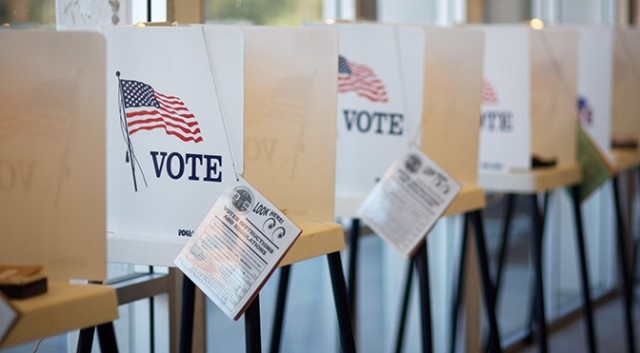by Dafydd Townley
The American election campaign takes its first major step towards selecting the final candidates for the two major parties next Tuesday. Super Tuesday, as it has become known, is the day on which the largest number of state electorates indirectly votes for the Democratic Party and Republican Party candidates. In the past four weeks, only four states has made their choice so far – Iowa, New Hampshire, Nevada and South Carolina – but on Super Tuesday fifteen states will go to the polls. Since 1976, when the term was first used to describe six states simultaneously holding primaries, Super Tuesday has given a clearer indication of the identity of the frontrunners for each party’s presidential candidate.
The polls on Super Tuesday will consist of a system of candidate elections known as primaries and caucuses, a complex system of proportional representation. For the uninitiated the primaries are governed by each state and are a secret ballot, while the individual parties privately run the caucuses. The primaries and caucuses can be either open – any registered voter can vote – or closed – restricted to just registered party members. There are also a few semi-closed events, where registered voters for a particular party and unaffiliated voters can take part just to complicate matters further. The primaries and caucuses will run between February and the national conventions in the summer.



Leave a comment